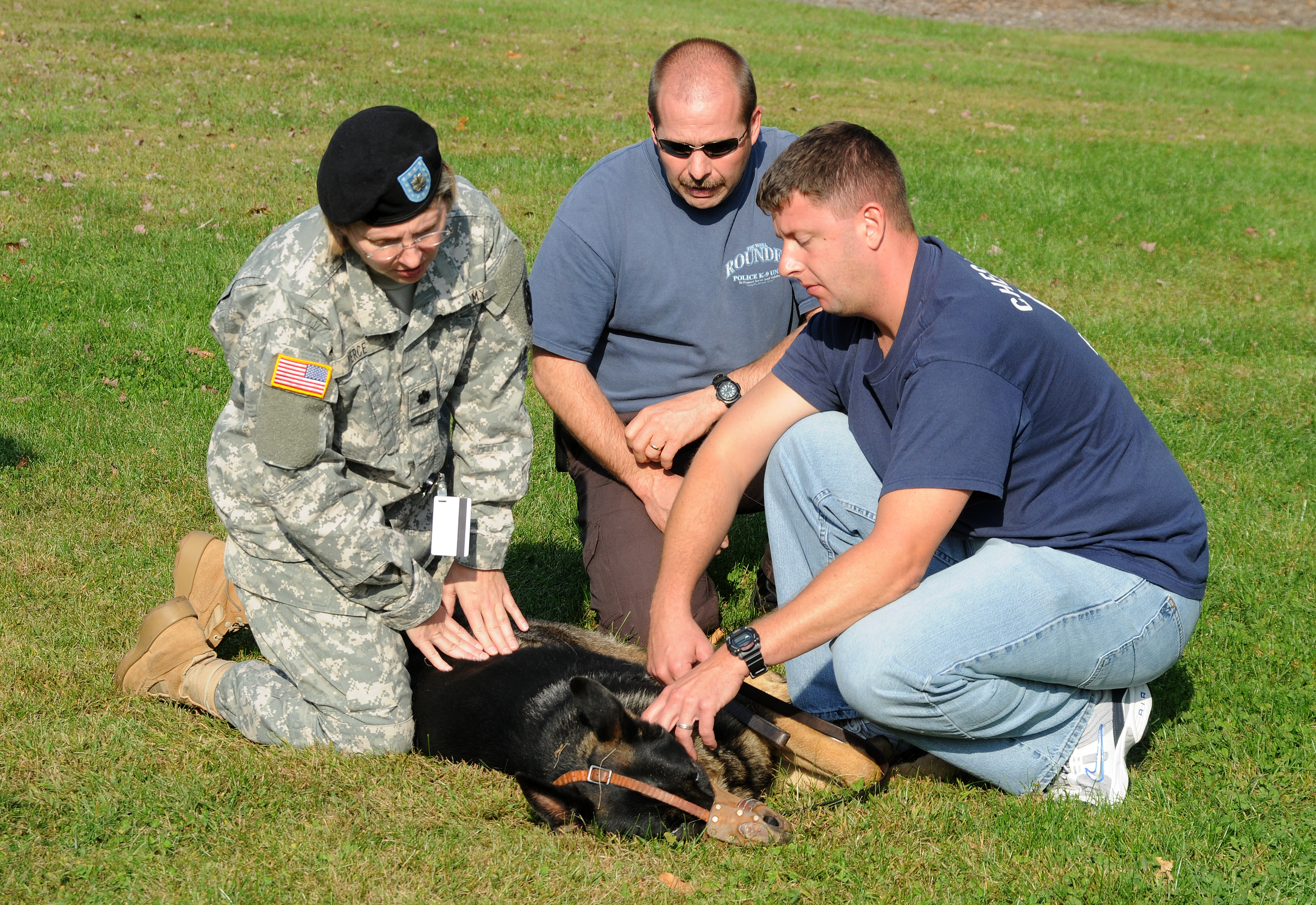Faculty member ranked among top U.S. military veterinarians in Europe

When Dr. Bess Pierce isn’t in a white lab coat at the Virginia-Maryland Regional College of Veterinary Medicine, she’s in a military uniform in Europe.
Pierce, who is an associate professor of community practice in the Department of Small Animal Clinical Sciences, doubles as one of the highest-ranking veterinarians stationed in Europe with the U.S. Army Reserve Corps. Every quarter, she dons her uniform and hops on a plane to cross the Atlantic and fulfill her duties as Col. Bess Pierce.
As a faculty member, Pierce oversees and mentors residents, interns, and students in the Small Animal Community Practice Clinic of the Veterinary Teaching Hospital. More commonly known as CPRAC, the group provides full-service preventative health care to small animals within a 35-mile radius of Blacksburg. These services include vaccinations, parasite preventive programs, spays and neuters, and dentistry, to name a few.
Since January 2013, Pierce has held the title of senior veterinarian for the Public Health Command Region-Europe in the U.S. Army Reserve Veterinary Corps. Her position parallels that of the active-duty deputy commander and senior veterinarian. If needed, Pierce can be called upon to step in and fulfill the duties of the deputy commander.
She serves as a member of the command team in charge of three health care categories: animal medicine, public health, and food protection. In addition to overseeing and providing the highest level of care to the military working dogs and service members’ pets, she oversees the safety of the troops and their family members through disease outbreak prevention and food safety inspections.
The European Public Health Command Region covers a vast area of the globe. It encompasses the United Kingdom, continental Europe, Turkey, U.S. military units in the Middle East, and Africa. Pierce provides support for animal medicine, public health, and food protection for all of these regions.
Though Pierce’s responsibilities are to all U.S. troops and government-owned animals in Europe, her passion is providing care and support to the military working dogs.
“(The dogs) give so much, and we consider them soldiers and vital team members,” said Pierce. “I love them, and I’ve devoted a lifetime of care to them.”
Though there are several veterinary treatment facilities and military veterinarians deployed into the field to provide care for military working dogs throughout the region, there is only one referral-level veterinary hospital: Dog Center Europe located in Kaiserslautern, Germany. The state-of-the-art facility provides support and consultation for hundreds of working dogs and thousands of service members’ pets throughout the region.
Nearby Landstuhl, Germany is home to Landstuhl Regional Medical Center, the largest American military hospital outside of the U.S. Both medical and public health command teams work closely together to ensure the best medical care for both human and veterinary patients.
Pierce has had to learn how to balance her time between her full-time teaching job at the veterinary college and her job in the U.S. Army Reserve. On weekends and evenings in Blacksburg, Pierce is making contact with the Public Health Command Region-Europe. Then every three months, she travels to Europe for two weeks to fulfill her duties as senior veterinarian. During the evenings in Europe, Pierce is making lesson plans for her students back home. She says the juggling of the two positions wouldn’t be possible without the support she has received from the veterinary college.
“I am very grateful of the support from the college, department, and all of my colleagues for allowing this to happen,” said Pierce. “This would be so much harder if they weren’t so supportive of this effort.”
Pierce says she isn’t sure that she wants to retire from the military or slow things down anytime soon. Though the schedules are difficult, she says she loves her work, and she’s determined to make a difference through what she does both for the military and the veterinary college.
“I will do it as long as I can contribute to the success of both missions — the missions of the university and the military,” she said.
As for other possible ventures or what the future may hold, Pierce is sure of one thing: she wants to continue to provide care for military working dogs and law-enforcement dogs.
“My life is working dogs,” said Pierce. “However, (my job) really is about supporting all of those troops out there. There are so many service and family members and animals that sacrifice a lot for us. I consider what I do an honor, and my job is easy compared to theirs.”
Written by Carla Craft, a senior majoring in communication in Virginia Tech’s College of Liberal Arts and Human Sciences.







